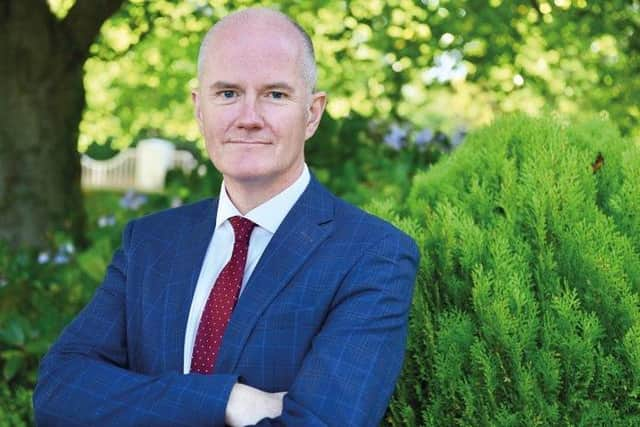NI’s construction sector in a ‘worst-case scenario’ warns top industry figure
and live on Freeview channel 276
Mark Spence, managing director of the Construction Employers Federation (CEF) believes the results of a recent trade body survey has painted a ‘stark picture’ of a sector that ‘is finding the never-ending inflationary pressures increasingly impossible to bear’.
The survey, which collected data from Northern Ireland-headquartered firms which have a collective annual turnover in excess of £1bn, covers the first six months of 2022 and reflects on many of the key challenges that contractors, civil engineers and housebuilders are facing currently.
The main findings in the report revealed:


Advertisement
Hide AdAdvertisement
Hide AdOver a third (36%) of firms surveyed stated their main priority in the year ahead was to stabilise output and consolidate their business
Only 11% said their main priority was growth and expanding turnover while 17% stated their main aim was survival and staying in business by any means
68% felt that rising material costs/inflation could have a serious or critical impact on their ability to deliver on contracts/projects
94% expect construction materials costs to continue to rise over the next 3 months
Advertisement
Hide AdAdvertisement
Hide AdOver a third (38%) warned that materials shortages are having a critical or serious impact on their ability to deliver on contracts/projects
62% feel there will be reduced opportunities for NI public sector work in the year ahead, with 70% foreseeing a reduction in opportunities for NI commercial work
68% said the use of alternative Government construction contract options which are more flexible in their design and approach would improve their willingness to bid for public sector work
68% expect an increase in demand for skilled labour in the next 3 months
Advertisement
Hide AdAdvertisement
Hide AdAddressing the recent figures, Mark Spence, managing director of the Construction Employers Federation, explained: “These results paint a stark picture of a sector that, whilst resilient in the face of many of the unprecedented headwinds of the last two years, is finding the never-ending inflationary pressures increasingly impossible to bear.
“With absolutely no sign of these pressures easing over the rest of 2022 and into 2023 we are seeing a significant draining of confidence within our membership as to their medium-term prospects – with an alarming number now talking openly about business survival as being their main focus.
“For those who engage in public sector works, the picture is further complicated by the lack of a functioning Northern Ireland Executive and the consequent impact on Government Departments being able to deliver their procurement pipelines in a timely manner.
“With many Government Clients telling us in recent weeks that they are operating on contingency budgets for the current financial year, we are now very much in the worst-case scenario for many when it comes to market conditions.
Advertisement
Hide AdAdvertisement
Hide Ad“A Northern Ireland Executive is not, of course, a panacea to many of the challenges that contractors are confronted with – but it can set a budget which unlocks a sustainable pipeline of work, and it can also, as our survey detailed, spearhead discussions around alternative forms of Government contracts which would be of benefit to all in the current crisis.
“When we also consider that housebuilders are facing not just the inflationary challenge but also the unavailability of wastewater connections in many parts of the country and a planning system that is in urgent need of major structural reform, it is clear that its prospects are also more uncertain than at any point since the 2007/08 financial crisis.
“Solutions to this are undoubtedly possible – but they require a fundamental shift in policy, performance and mindsets in order to unlock the new build housing which is an economic, societal and environmental imperative.”